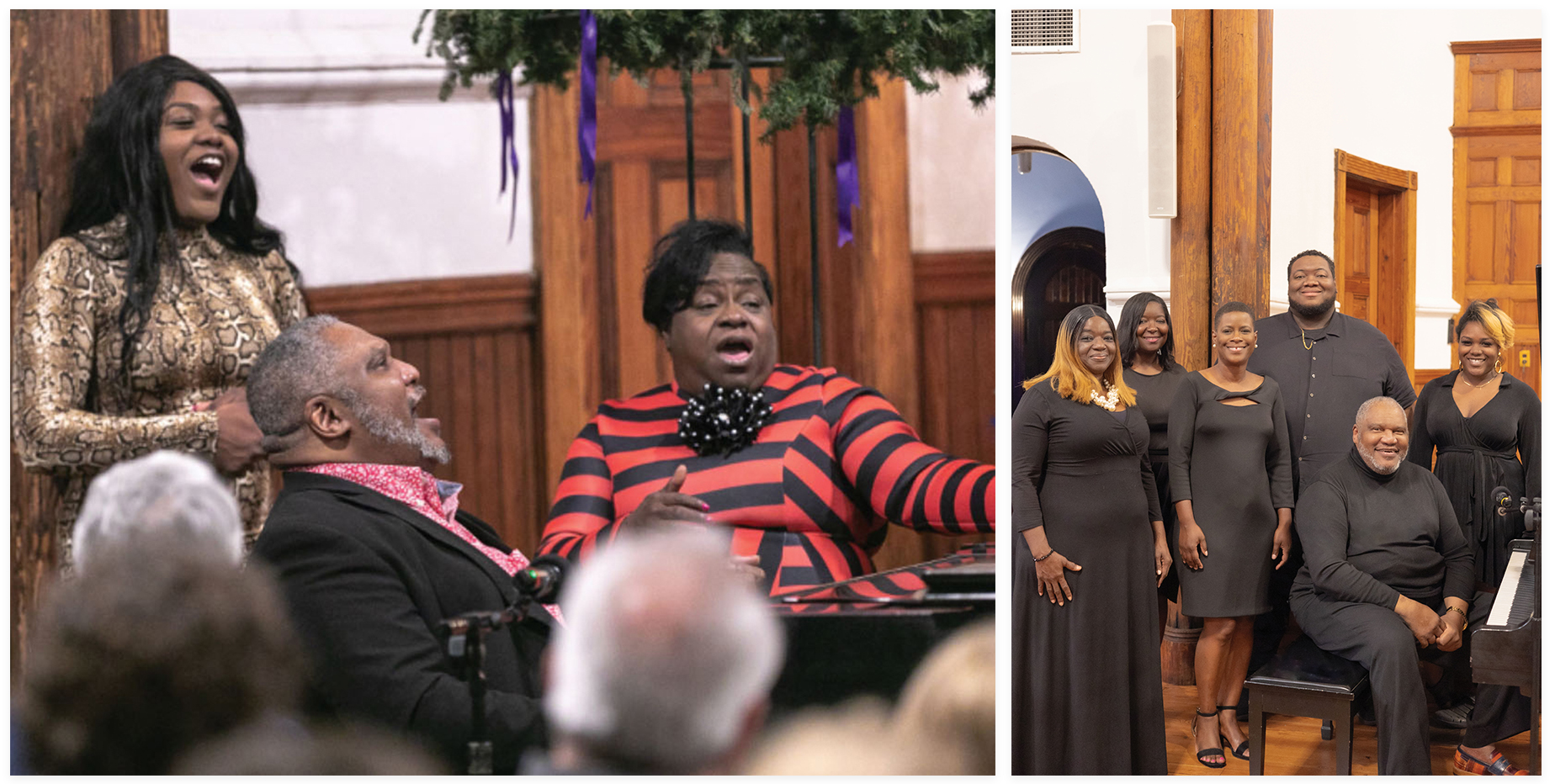There are six special holiday performances at the Circular Congregational Church in December

Carl Bright performs as part of the Sound of Charleston (December 1, 8, 15, 22, 26, & 30) and Oh Happy Day (December 3) gospel series at Circular Congregational Church. Visit soundofcharleston.com to learn more.
Ever since Carl Bright taught himself how to sing three-part harmonies using two reel-to-reel tape recorders as a child, the 72-year-old gospel singer and pianist has been bringing joy and inspiring audiences through song.
The minister of music at Brownsville Community Church of God in Summerville performs with his wife, Guinevere, and daughter, Genesis, as the Bright Family Singers, and is also recognized for creating the popular Oh Happy Day gospel series and performing in the Sound of Charleston productions at Circular Congregational Church.
Bright’s mastery of music, composition, storytelling, history, and leadership, combined with his uncanny ability to read a room, make for a transcendent experience for the audience. (He’s been known to ask a listener for their favorite scripture, compose a song about it on the spot, and moments later, lead a choir in performing it.) This month, Bright joins in the holiday edition of the Sound of Charleston. Here, he shares how he finds power in music.
Nurturing his Gift: When I was seven, I taught myself harmonies, and then my mom bought me a piano and made me take lessons even though I could already play. She saw my gift, and she wanted me to learn. She said, “You’re going to be doing this when you’re an old man.” My dad told me to treat my gift like a diamond. I’m 72-years-old, and they were right. I’m still doing what my mom said I would be, and now I treat it like a diamond.
Early Influences: The Reverend James Cleveland was always playing in my house. I’d never heard harmony like that. I tried to copy what I heard on the record, but back then, I had to pick up the needle and put it back over and over until my parents told me to stop. [Gospel singer] Walter Hawkins was just phenomenal to me; the sound was incredible in person, and the music was so tight. I stood up the whole concert. I was a young teenager then, but I remember thinking, “Angels don’t even sound like this.” Richard Smallwood, too. I listened to a lot of music growing up, but those three had the biggest impact on me.

(Left) Carl performing; (Right) Belinda Green Brown, Auderay Gibbs, Alison Champagne, and Kylin Johnson with Carl and his daughter, Genesis.
Finding Inspiration: I’m inspired by life, what happens to other people, and what’s happened to me. I’m inspired by the word of God. In fact, music is how the word used to get out. A prophet wouldn’t preach like we preach today. They’d hear from God, then compose a song about it, and sing to a crowd. Then, they would copy it and go back and sing it to their townships.
The Power of Music: For me, it’s a place of peace and fortitude. It’s a place I can rest.
In our Oh Happy Day gospel series, for 75 minutes, there’s no race or color, no type of separation, no Republican and no Democrat. People are raising their hands; some are weeping. When I point this out to the audience, they clap. Music is so powerful that they’d separate the musicians during wars because music brings people together.
The Sound of Charleston: It’s a journey through the city’s musical heritage. Bill Schlitt narrates, and he’s very good at getting people’s attention. We do Gershwin and spirituals, but it’s not just good singing; it’s information. After the show, people will say, “I knew about slavery, but I had no idea.” Enslaved people couldn’t read, couldn’t write, didn’t know musical notations, and had no vocal learning, but they mesmerized their masters with their melodious voices. They listened to the Bible stories and used the words to compose songs that helped them escape. The same scriptures that were used to keep them bound, they used to get free.
Oh Happy Day features songs about hope and faith from slavery until now. We talk about how [singer] Mahalia Jackson couldn’t come in the front door of the venues where she played or eat in the restaurants in town. It’s a kind of teaching. I count it a privilege that God chose me.